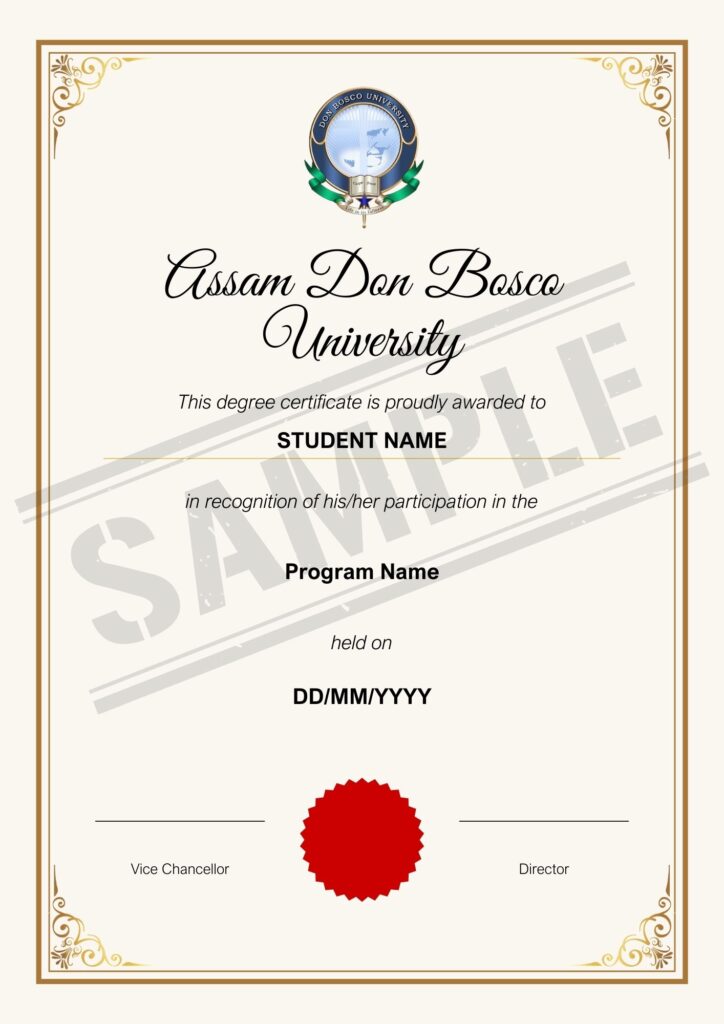Test Program
MSc in Microbiology
Microbiology and its applications in various fields, including health-care delivery particularly in pathological and immunological laboratories as well as in the fields of ecology and genetic engineering, form the core areas of study in this Master’s Course. A thorough grounding in virology, bacteriology, mycology, microbial genetics and immunology ensure that the students are equipped with fundamental knowledge and skills for study and research in various specializations of microbiology.
Microbiologists find ready employment in diverse fields, such as universities, hospitals, pharmaceutical and agrochemical industries, food processing and packaging industries, pathological and diagnostic laboratories, water works and eco-conservation agencies.

Program Highlights and Advantages
Discover our Degree Programs and begin an exciting educational journey

Emerging specializations
New-age specializations shaping tomorrow's business landscape

Robust Learning Model
550+ hours of video lectures to help you maximize your learning

Personalized Learning
Personalized learning through unique option of choice based credit system

Real World Projects
Real world projects & case studies to help you succeed in your domain
Program Overview & Structure
| Biomolecules |
| Thermodynamics and Enzymology |
| Cell Biology and Genetics |
| Analytical Techniques for Biological Sciences |
| Biomolecules Lab |
| Analytical Techniques Lab |
| Thermodynamics and Enzymology Lab |
| Lab Cell Biology and Genetics Lab |
| Computer Applications for Biosciences and Bioinformatics |
| Molecular Biology |
| Cell Biology and Genetics |
| Genetic Engineering |
| Basic Microbiology |
| Computer Applications for Biosciences and Bioinformatics Lab |
| Molecular Biology Lab |
| Genetic Engineering Lab |
| Basic Microbiology Lab |
| Virology, Bacteriology and Mycology |
| Microbial Diversity and Ecology |
| Research Methodology and Biostatistics |
| Immunology and Medical Microbiology |
| Dissertation Phase I |
| Microbiology Techniques Lab |
| Microbial Diversity and Ecology Lab |
| Immunology Lab and Medical Microbiology |
| Advances in Microbiology |
| Dissertation Phase II |
Degree offered by us

Eligibility
Grade /Marks requirement from qualifying examinations
Graduation in any area of Life Sciences with 60% in the aggregate and Chemistry as a subject. Those who have a background in Biochemistry at Bachelor’s Degree will have an advantage.
Provisional Admission
Applicants who have not yet obtained their Bachelor’s Degree also may apply for admission. Such candidates would be offered provisional admission until they furnish evidence of fulfilling the eligibility criterion stated in (1) above within 3 months of the commencement of the programme.
Career Impact
How We Help You Build Your Dream Career
Industry Mentors
Personalized guidance from career experts throughout the academic journey.
Placement Drives
Connect with employers & explore opportunities through interactive online events.
Master Classes
Access comprehensive help for resume building, interview preparation and job placement.
Profile Building
Build a credible professional profile by showcasing your skills through hands-on projects.
F.A.Q.
Supporting Subheading
The university offers a range of undergraduate, graduate, and doctoral programs across disciplines including engineering, science, arts, business, and health sciences. Each program has its own specific requirements and areas of focus.
You can apply online through our university’s admissions portal. Complete the application form, submit the required documents (such as transcripts, test scores, and recommendation letters), and pay the application fee. Detailed instructions are available on our admissions webpage.
Admission requirements vary by program. Typically, undergraduate programs require a high school diploma and specific academic credentials, while graduate programs may require a bachelor’s degree in a related field, relevant test scores, and work experience. Be sure to review the specific requirements for the program to which you are applying.
Yes, the university offers a variety of scholarships and financial aid programs based on academic merit, financial need, and other criteria. Information about available scholarships and how to apply is available on the university’s financial aid webpage.
Application deadlines vary depending on the program and the intake period (e.g., fall, spring). Be sure to check the program’s admissions page for specific deadlines.
